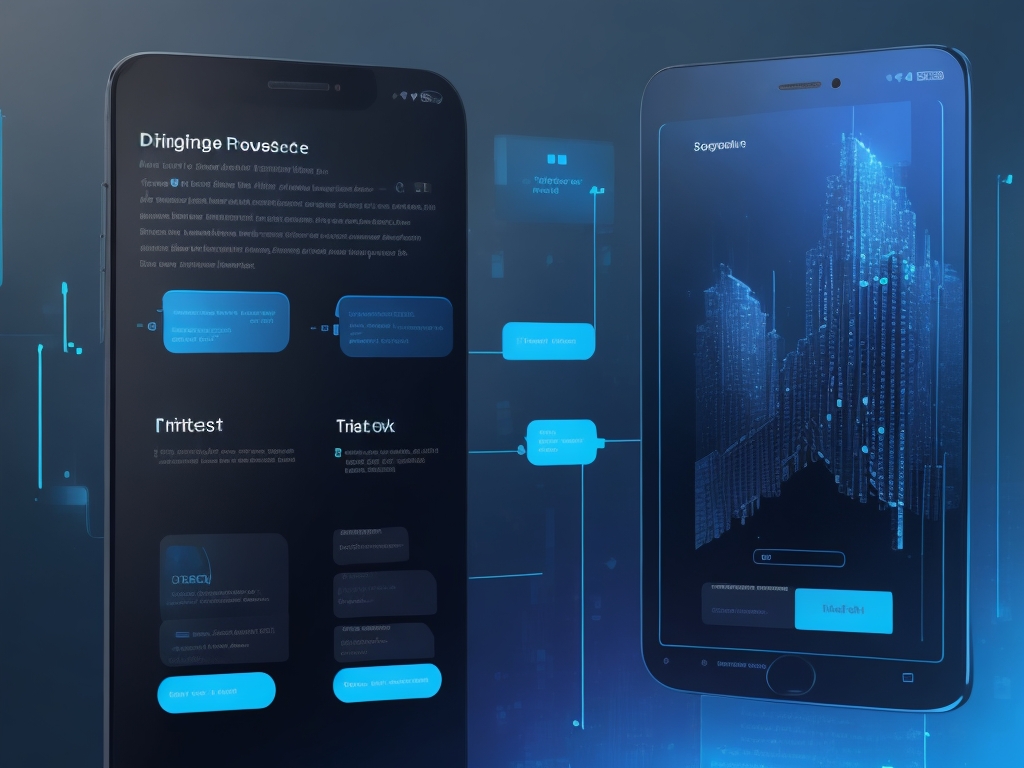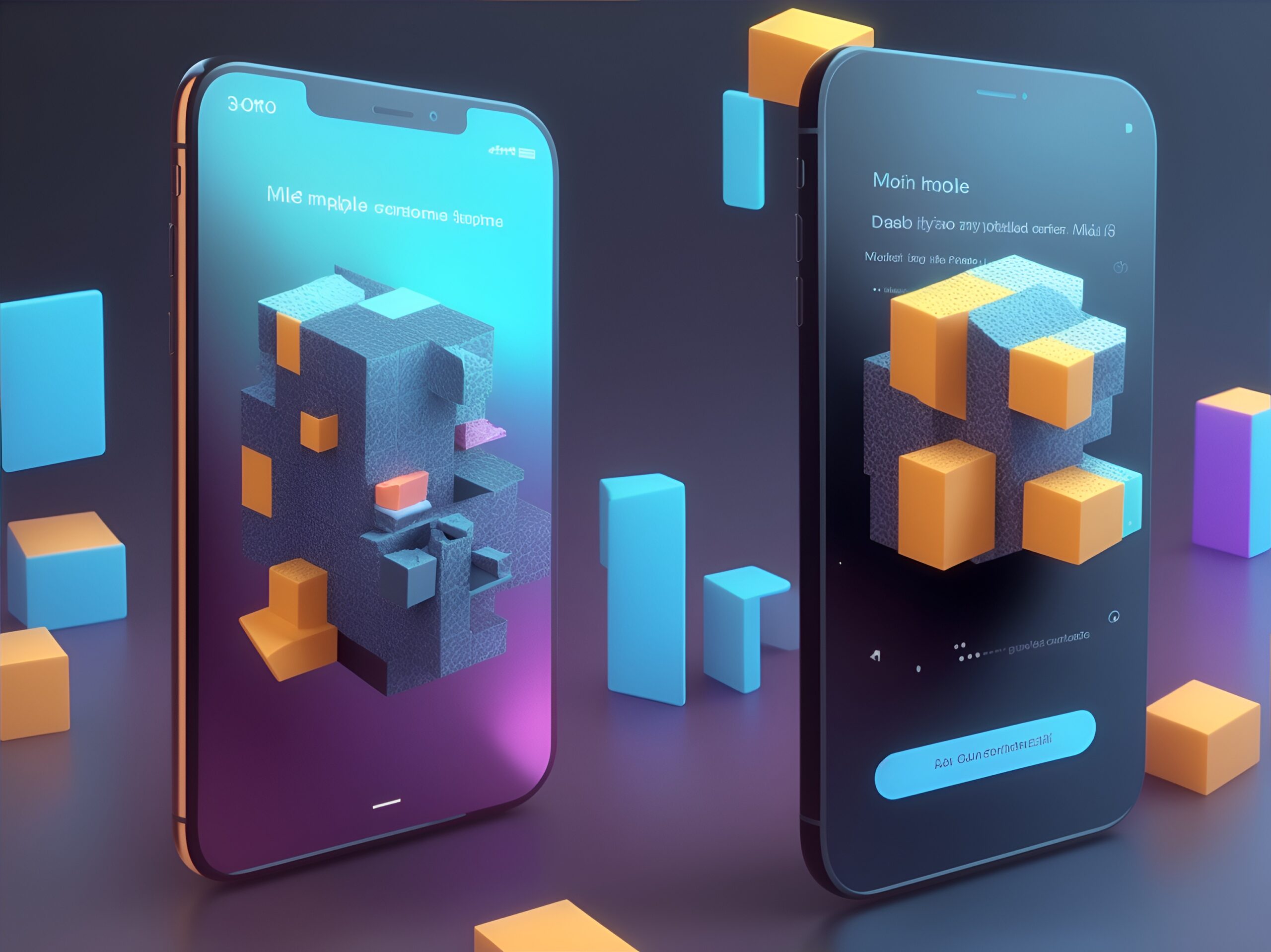Hello there! We’re thrilled to have you here on the Mobiwolf blog, where we love sharing insights about the ever-evolving world of mobile app development. Today, we’re diving into a topic that’s been making waves in the industry: “No-Code Mobile App Development.” What is it, and why should you care? Let’s find out.
Pros and Cons of No-Code Mobile App Development:
Let’s start with the good stuff, shall we?
Pros:
Speed of Development:
Imagine bringing your app idea to life at lightning speed. No-code platforms make it possible. They’re designed for swift app creation, perfect for when time is of the essence.
Cost-Efficiency: Who doesn’t love cost savings? No-code development often means fewer hours billed, which can be a game-changer, especially for startups and smaller businesses.
Accessibility: No-code tools are a game-changer. You don’t need to be a coding whiz to build an app anymore. Anyone with an idea can roll up their sleeves and get started.
Iteration and Prototyping: No-code is a playground for experimentation. It’s easy to tweak and test your app as you go, making it ideal for refining your concept.
Now, onto the other side of the coin.
Cons:
Limited Customization:
If your app requires highly specialized features and unique functionalities, you might find no-code tools limiting.
Scalability: No-code can be like training wheels for your app. It’s great for small to medium-scale projects, but it might struggle to handle complex, large-scale apps.
Dependency on Third-Party Platforms: Relying on external platforms means you’re at their mercy. Changes in their policies or services can affect your app.
When to Use No-Code Mobile App Development:
Now that you know the ups and downs let’s explore when you should hop on the no-code train.
Rapid Prototyping:
For those moments when you need a working prototype ASAP to secure funding or attract users.
MVP Development: Building a Minimum Viable Product? No-code can help you get there faster.
Small to Medium-Scale Apps: It’s a no-brainer for apps in this category.
Limited Budgets: No-code development can help you achieve your goals without breaking the bank.
Non-Technical Founders: If you’re not a coder but have a brilliant app idea, no-code is your golden ticket.
Examples of No-Code Platforms:
Here’s a quick list of popular no-code platforms to explore:
Bubble.io:
A versatile platform for web and mobile apps.
Adalo: Known for its simplicity and mobile app focus.
OutSystems: Ideal for more complex projects.
Appy Pie: User-friendly and suitable for beginners.
Thunkable: Great for building mobile apps with a focus on user experience.
Glide: Perfect for creating data-driven apps.
Zoho Creator: An excellent choice for business applications.
Exploring the Possibilities with Mobiwolf:
At Mobiwolf, we’ve always been passionate about helping our clients navigate the ever-changing landscape of app development. No-code is no exception. We understand that while no-code tools are fantastic for many projects, some require a more experienced touch.
That’s where we come in.
Our team combines the power of no-code development with our years of expertise in building mobile apps. We’ve successfully delivered projects across various industries, from healthcare to e-commerce, using no-code platforms. We bridge the gap between no-code’s accessibility and the complexity of your unique vision.
Stay Ahead in the No-Code Revolution:
The world of app development is evolving faster than ever. We encourage you to stay informed about the latest trends and innovations. Consider subscribing to our blog for regular updates on no-code development and more.
Final Thoughts:
In conclusion, no-code development is a powerful tool in your app-building arsenal. It’s not a one-size-fits-all solution, but when used appropriately, it can be a game-changer. At Mobiwolf, we’re here to help you make the most of this exciting technology. Don’t hesitate to reach out and explore how we can work together to bring your app idea to life.
However, we’d like to emphasize that, while no-code development has its advantages, for projects where scalability, customization, and a seamless transition from MVP to a fully-featured app are key considerations, we recommend native mobile app development. Using Kotlin for Android and Swift for iOS ensures a smooth bridge from start to finish. This approach allows you to create apps that are not only performant but also fully aligned with the unique needs of your project.
Thank you for joining us today on this exploration of no-code mobile app development. We hope you found this article valuable and insightful. Stay curious, stay innovative, and let’s build amazing apps together!









